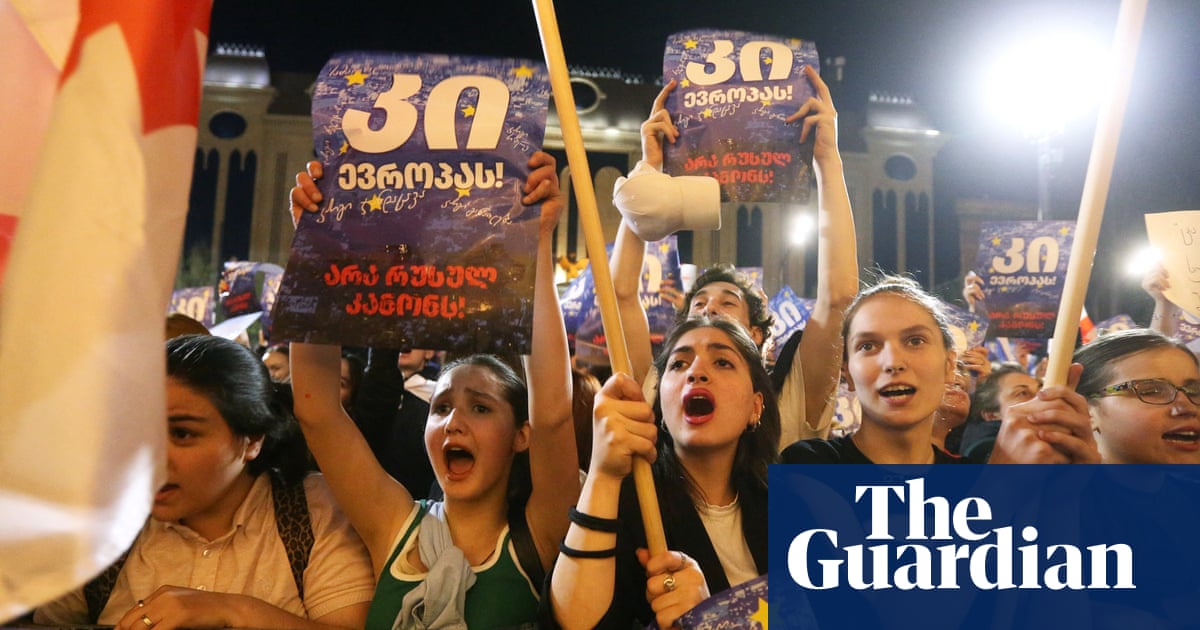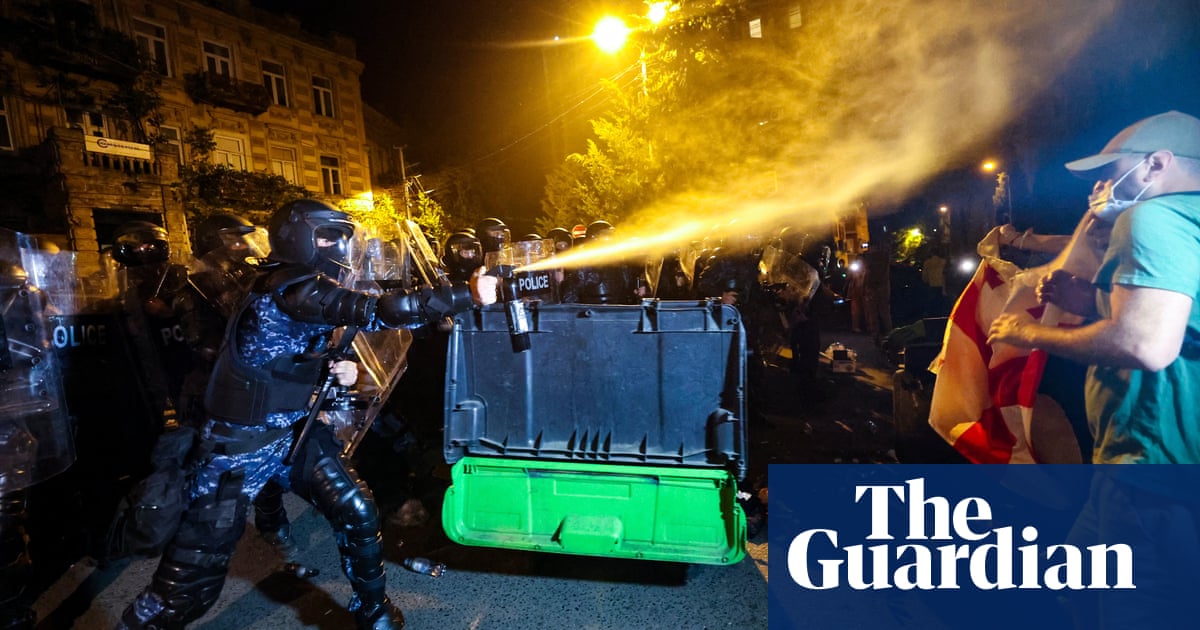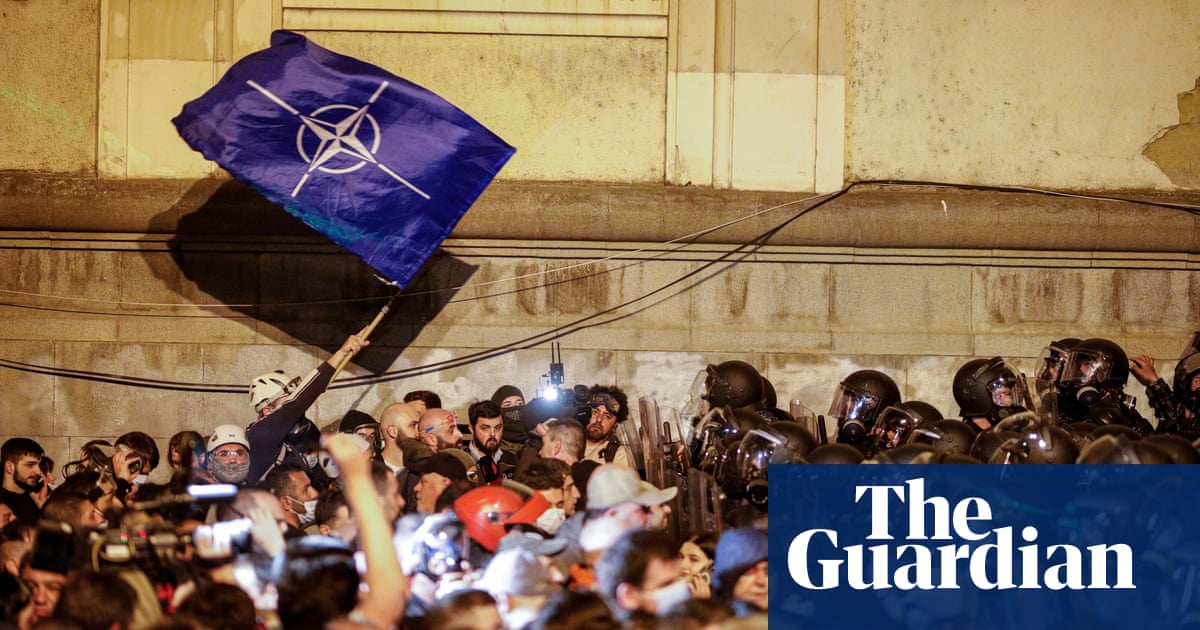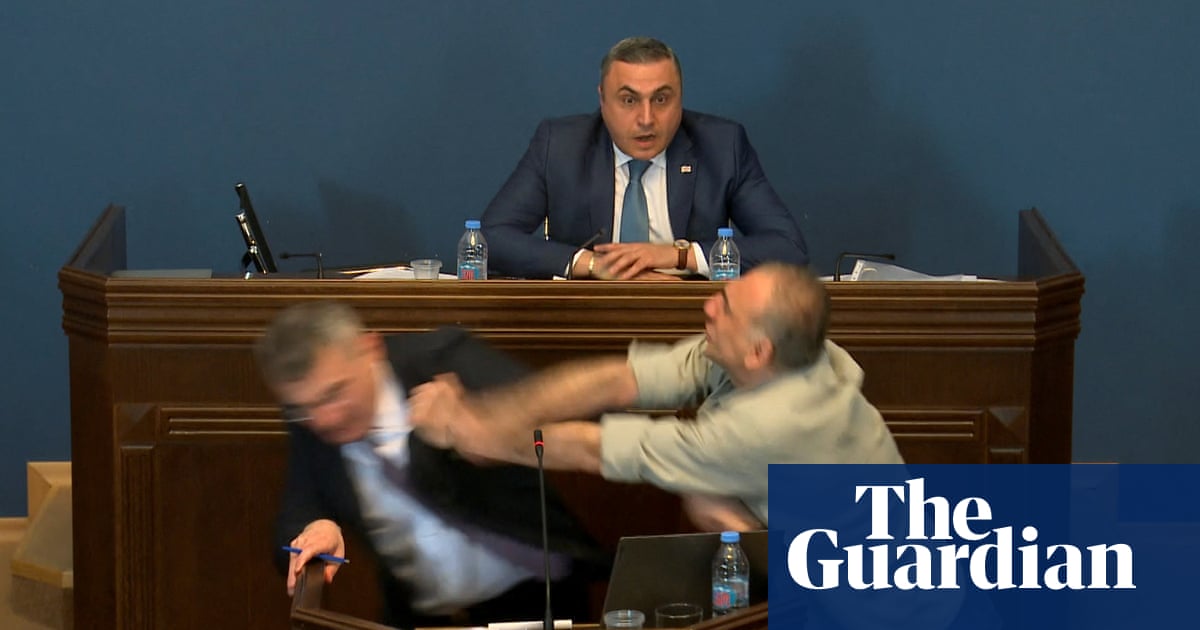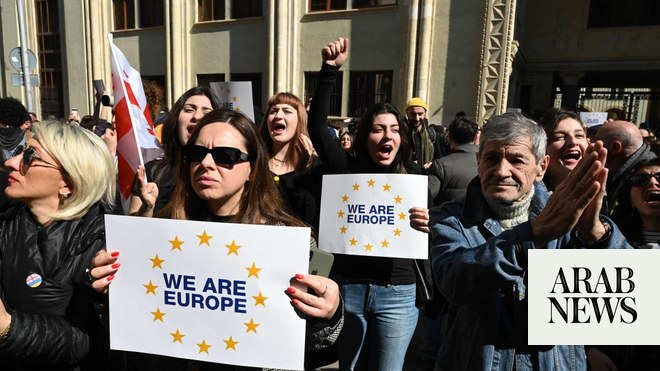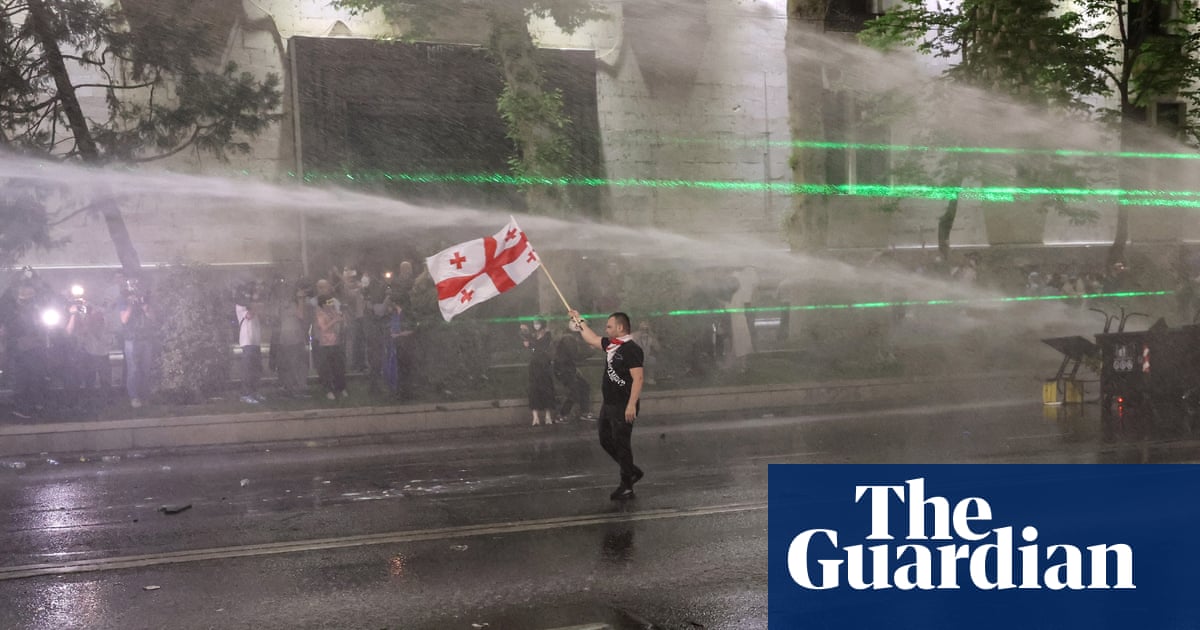
Watchdogs and western governments have condemned a police crackdown on protesters in Georgia who are calling for the withdrawal of a “foreign agents” bill that critics say is anti-democratic and inspired by Russia.
Security forces used water cannon, teargas and stun grenades against demonstrators late on Tuesday, prompting criticism from rights groups. Sixty-three protesters were detained, according to Georgia’s interior ministry.
There were widespread reports of police violence, including against journalists, while the chair of the main opposition United National Movement, Levan Khabeishvili, was beaten.
So why did the protests start? How are civil society and western officials responding to the crackdown? And where does the country go from here?
Why are Georgians protesting?
Thousands of Georgians have been demonstrating each night since 17 April, when the country’s parliament approved a first reading of the controversial “foreign agents” bill.
The bill, called “the Russian law” by critics, would require groups receiving more than 20% of their funding from outside Georgia to register as foreign agents.
The measure, which protesters say is authoritarian in nature, was introduced despite a pledge by thegovernment last year to “unconditionally withdraw” such legislation. A second reading of the bill is expected on Wednesday.
The political crisis comes at a time when many Georgians fear their country is moving away from the west.
“Everyone clearly understood that the purpose of the adoption of the Russian law is not the notorious ‘transparency’, but the change of the country’s foreign course and the completion of Russification,” Transparency International Georgia said in a statement.
At a rally on Monday, the ruling Georgian Dream party’s founder, Bidzina Ivanishvili, defended the bill and lashed out at the west.
In a speech heavy with conspiracy theories, the billionaire hit out at a “global party of war” and suggested the country’s pro-western opposition was controlled by foreign intelligence services.
The comments further fuelled fears among the government’s critics that the ruling Georgian Dream party, which has been in power since 2012, could crack down on dissent before parliamentary elections later this year.
How are Georgians responding to the crackdown?
The police violence has shocked Georgia, with watchdogs warning that security forces had used “disproportionate force.”
The Georgian Young Lawyers’ Association said that “peaceful protest is a mechanism for promoting democratic processes in the hands of citizens, and any attempt to suppress it is an anti-constitutional act”.
Salome Zourabichvili, the president of Georgia – whose role is primarily ceremonial – criticised what she said was a “totally unwarranted, unprovoked and out-of-proportion use of force ongoing in Tbilisi against peaceful protesters”.
“Full responsibility falls entirely on the government. Right of peaceful protest is denied to the Georgian people,” she said, adding the hashtag “#notoRussianlaw”.
What has the international community said and what will it mean for Georgia’s hopes of joining the EU?
The crackdown on protesters prompted criticism from Brussels.
“I strongly condemn the violence against protesters in Georgia who were peacefully demonstrating against the law on foreign influence,” the EU’s foreign policy chief, Josep Borrell, said on Wednesday.
“Georgia is an EU candidate country. I call on its authorities to ensure the right to peaceful assembly. Use of force to suppress it is unacceptable,” he added.
David McAllister, the chair of the European parliament’s foreign affairs committee, said the “brutal crackdown” underlined “the very concerning direction the Georgian government has taken with regard to democratic freedoms”.
“This law has the potential to seriously derail Georgia’s path towards EU membership,” he warned.
The US state department has also expressed concern about the legislation.
Jim O’Brien, the department’s assistant secretary for European and Eurasian affairs, said that he had an “important conversation with Georgian MPs about our bilateral relationship, including our strong concerns over the draft Kremlin-inspired ‘foreign influence’ law and its negative impact on Georgia’s European aspirations”.




